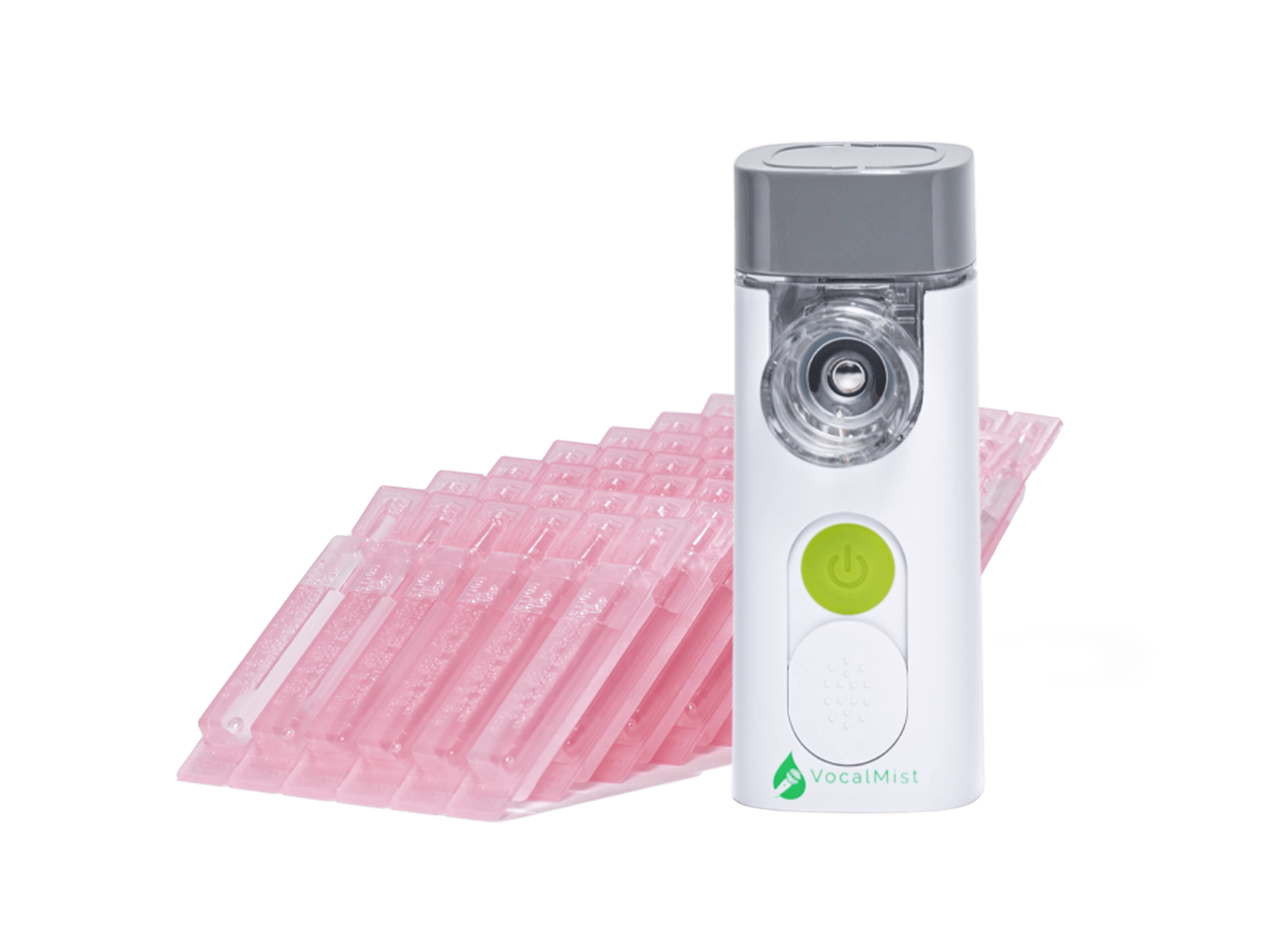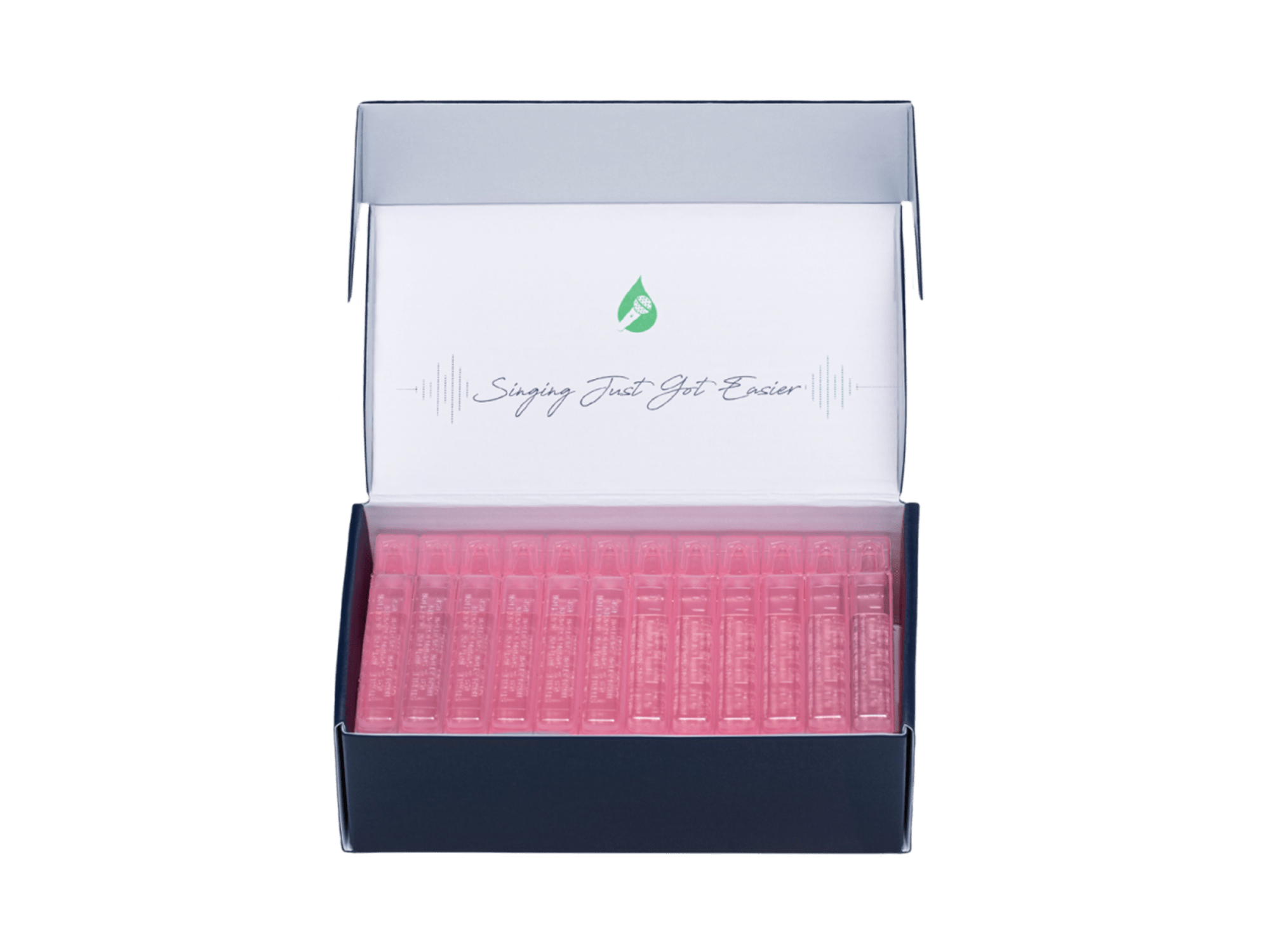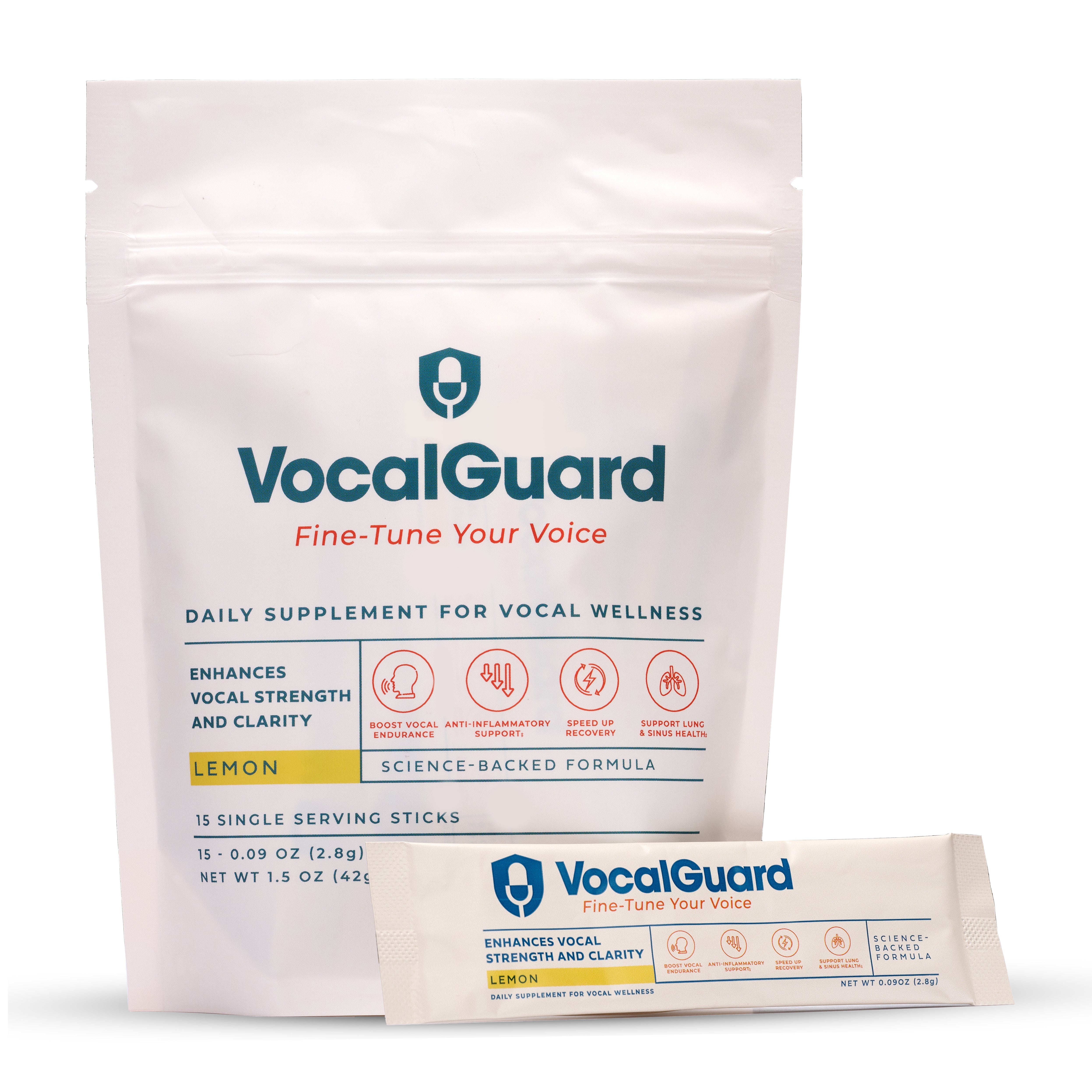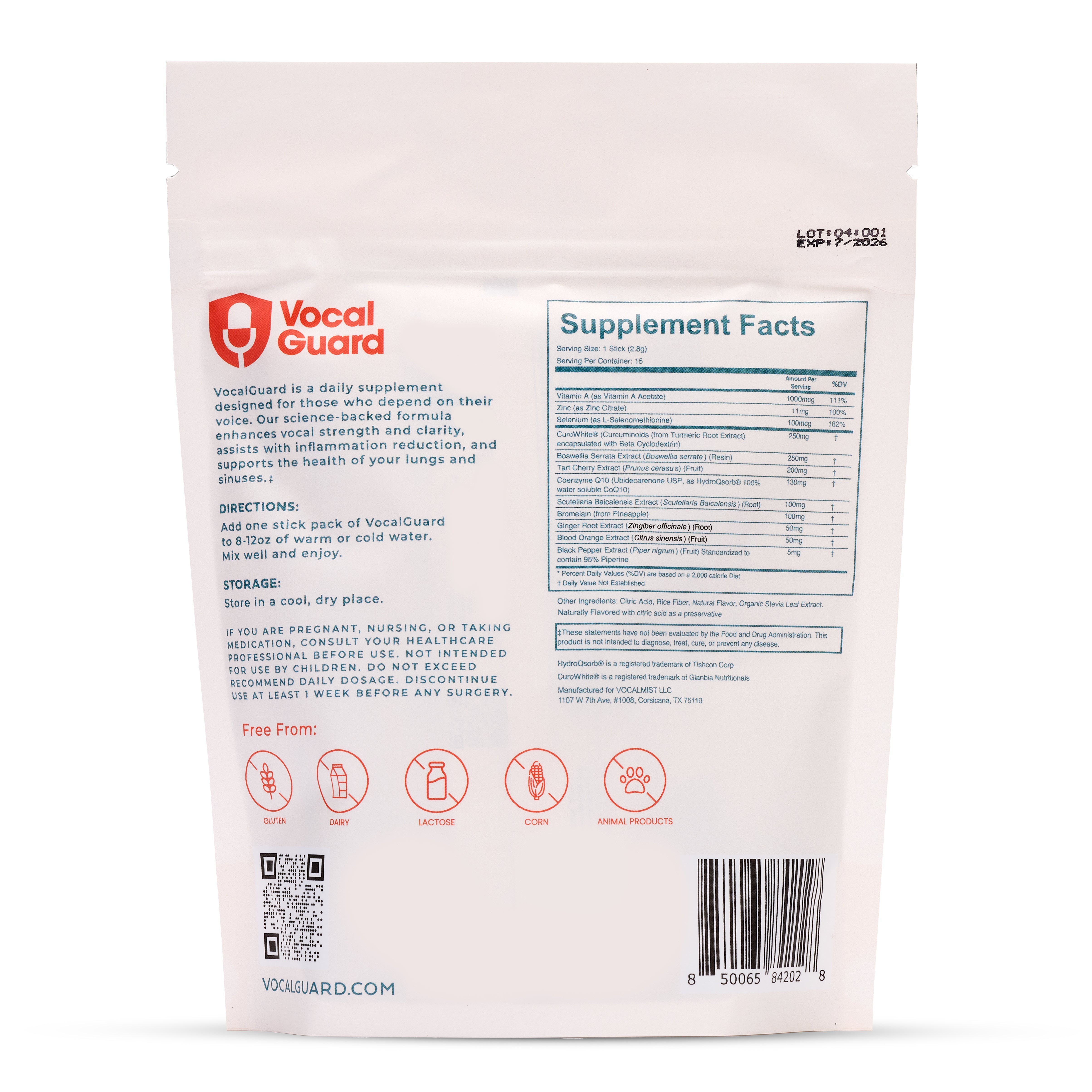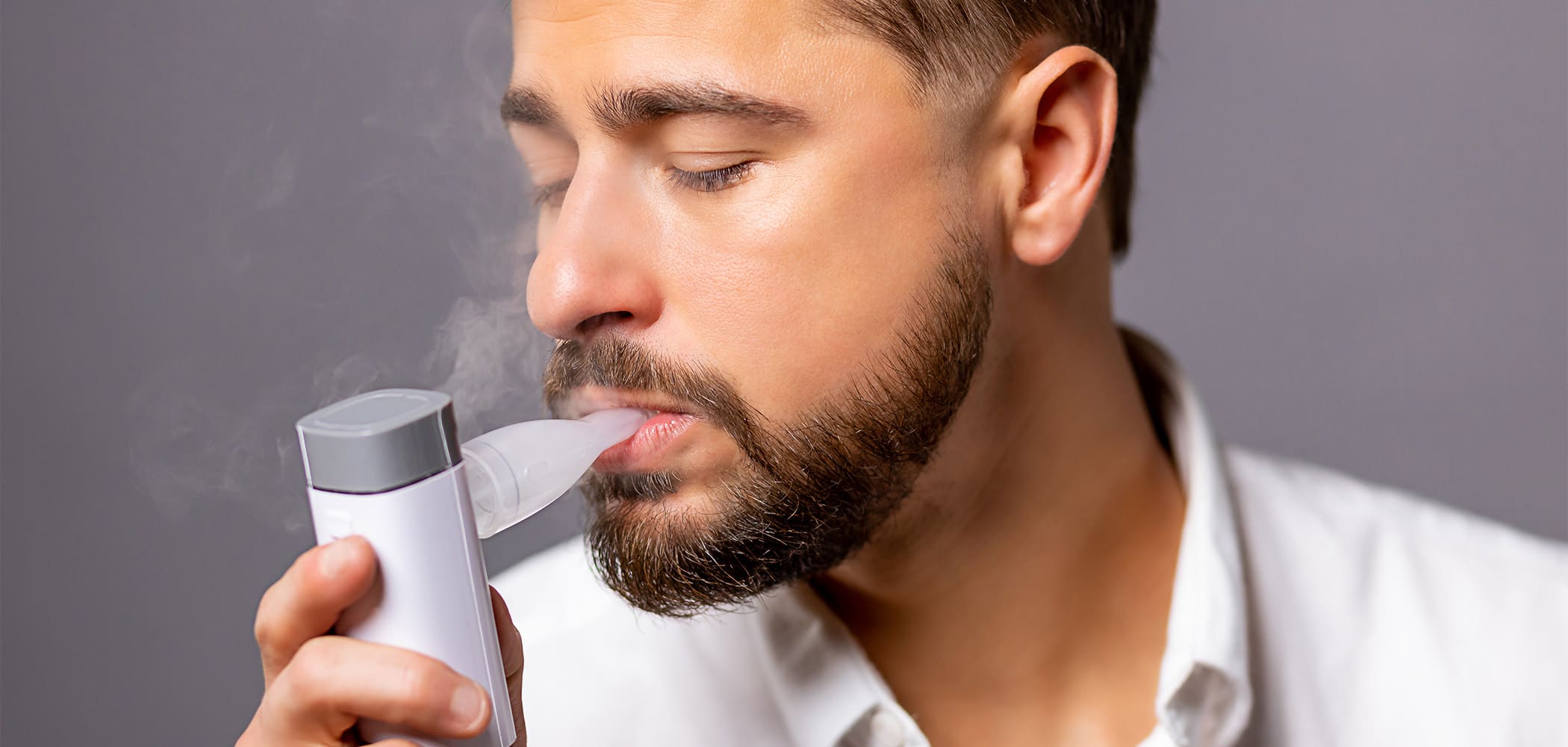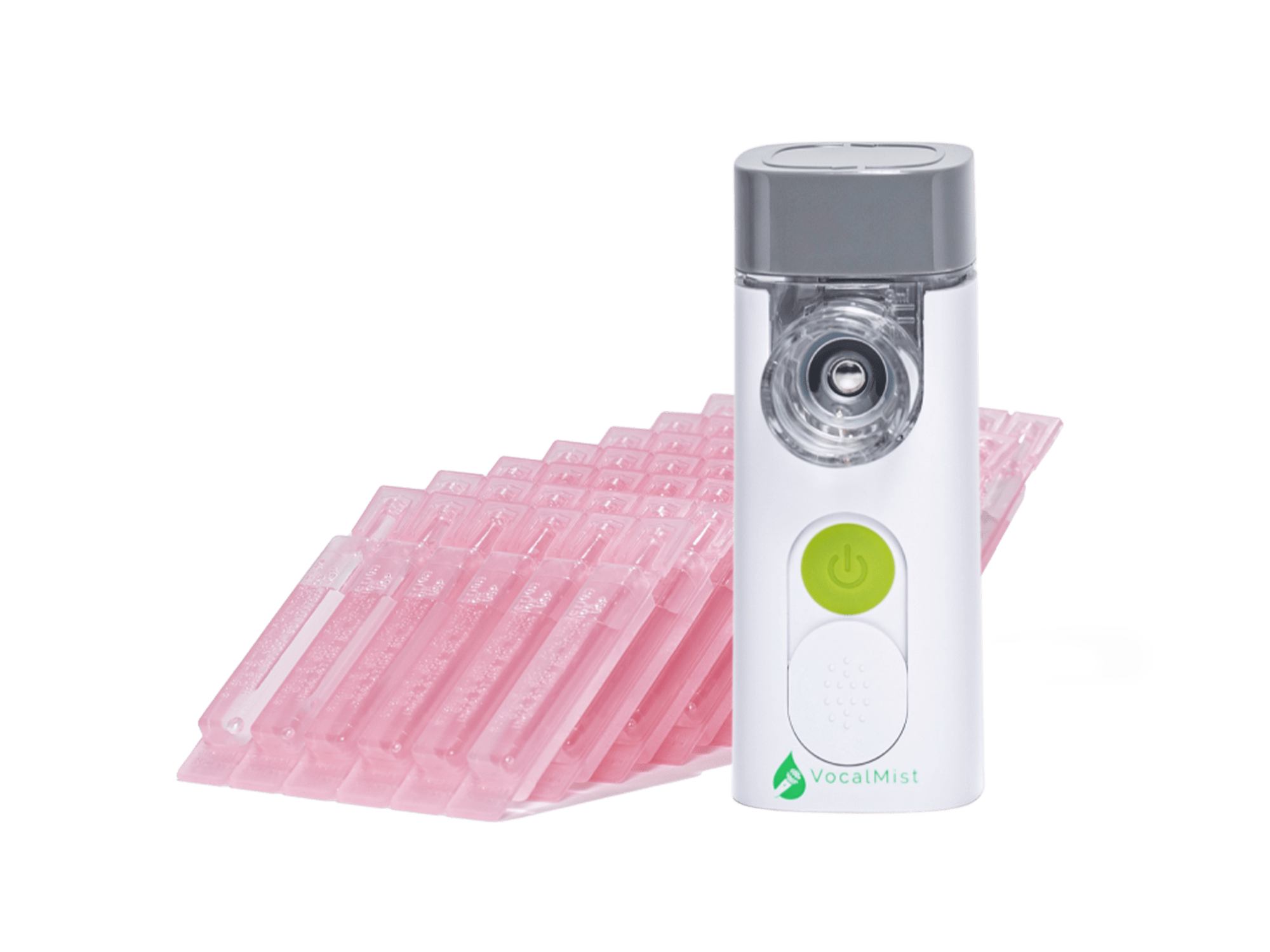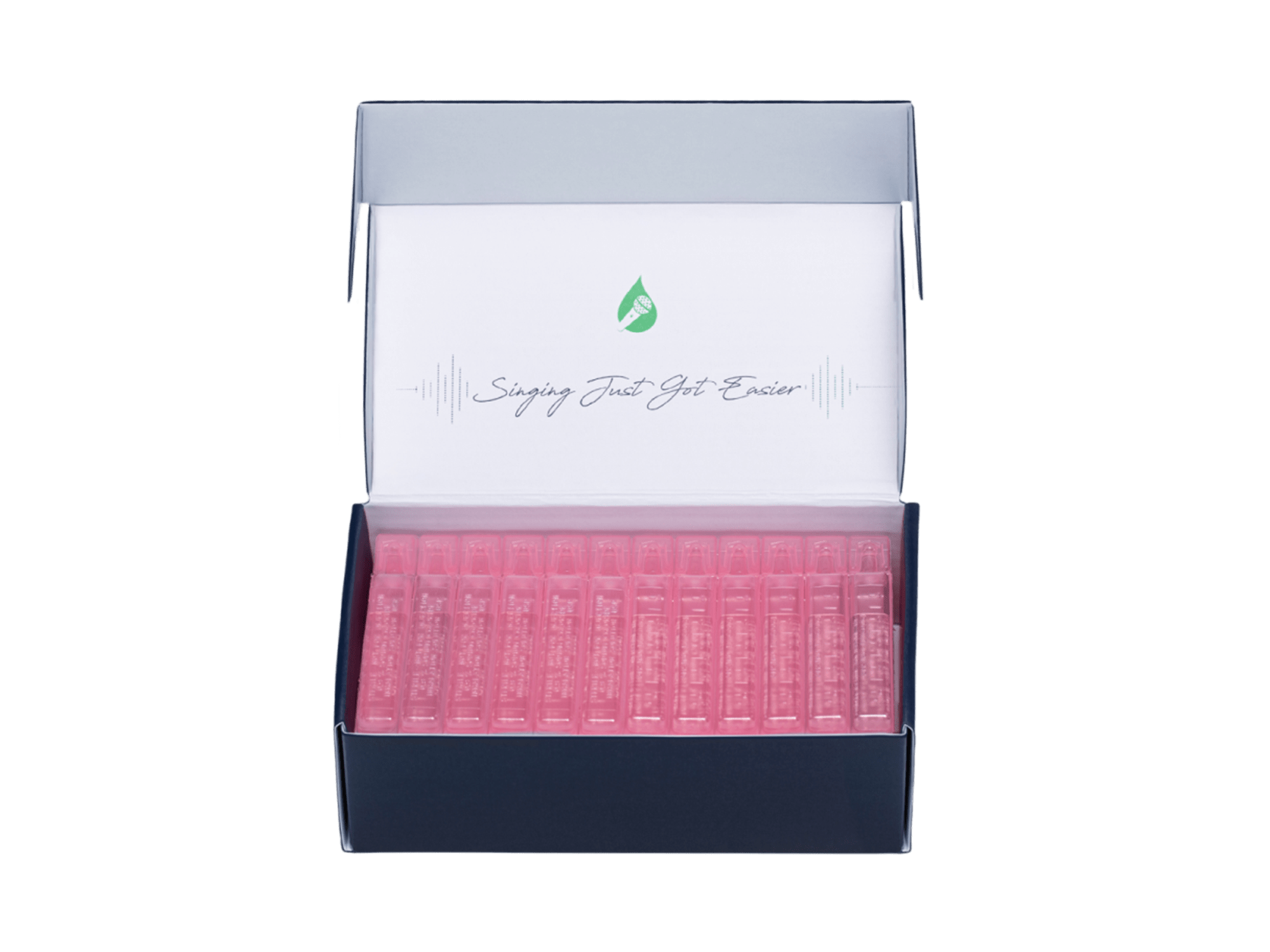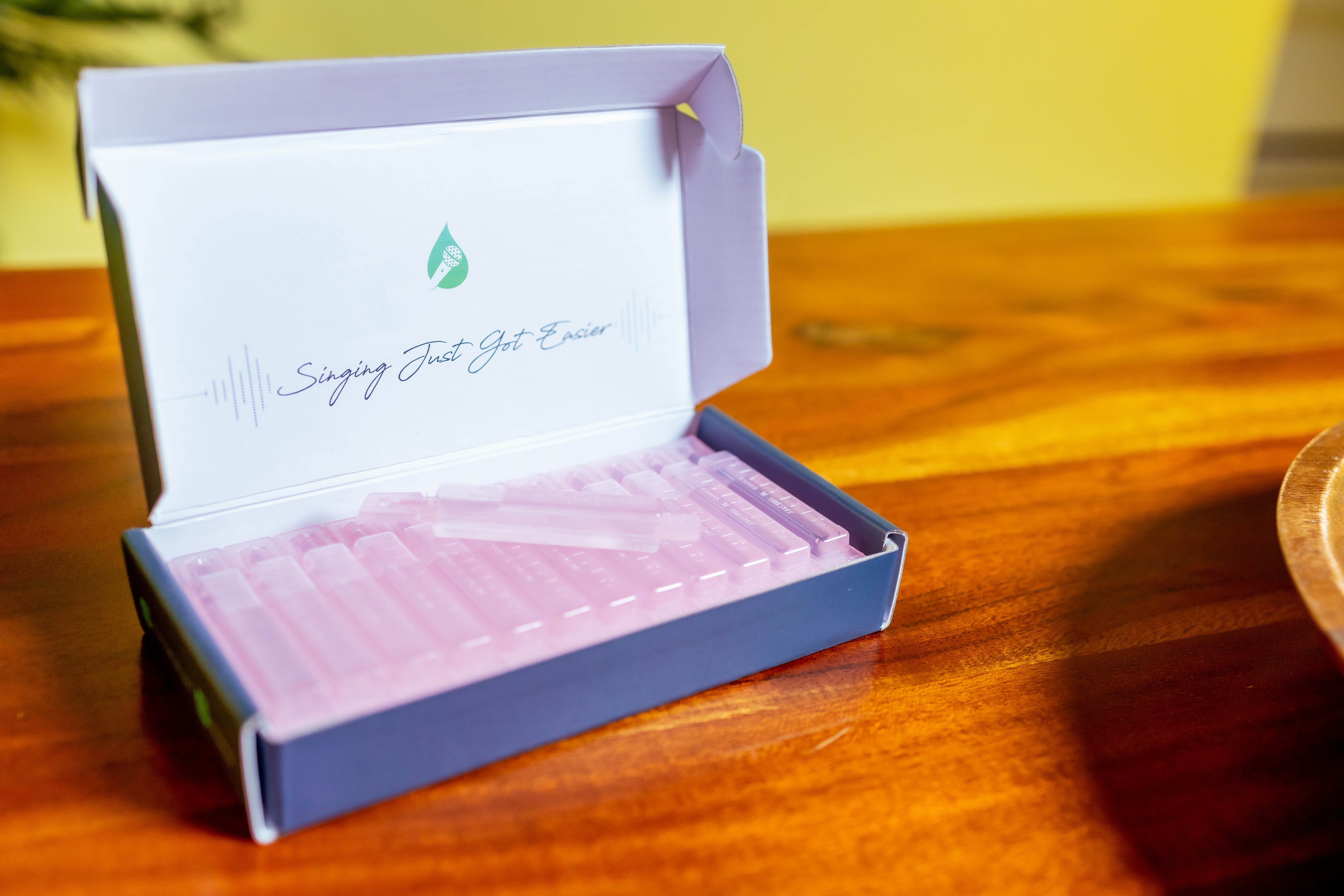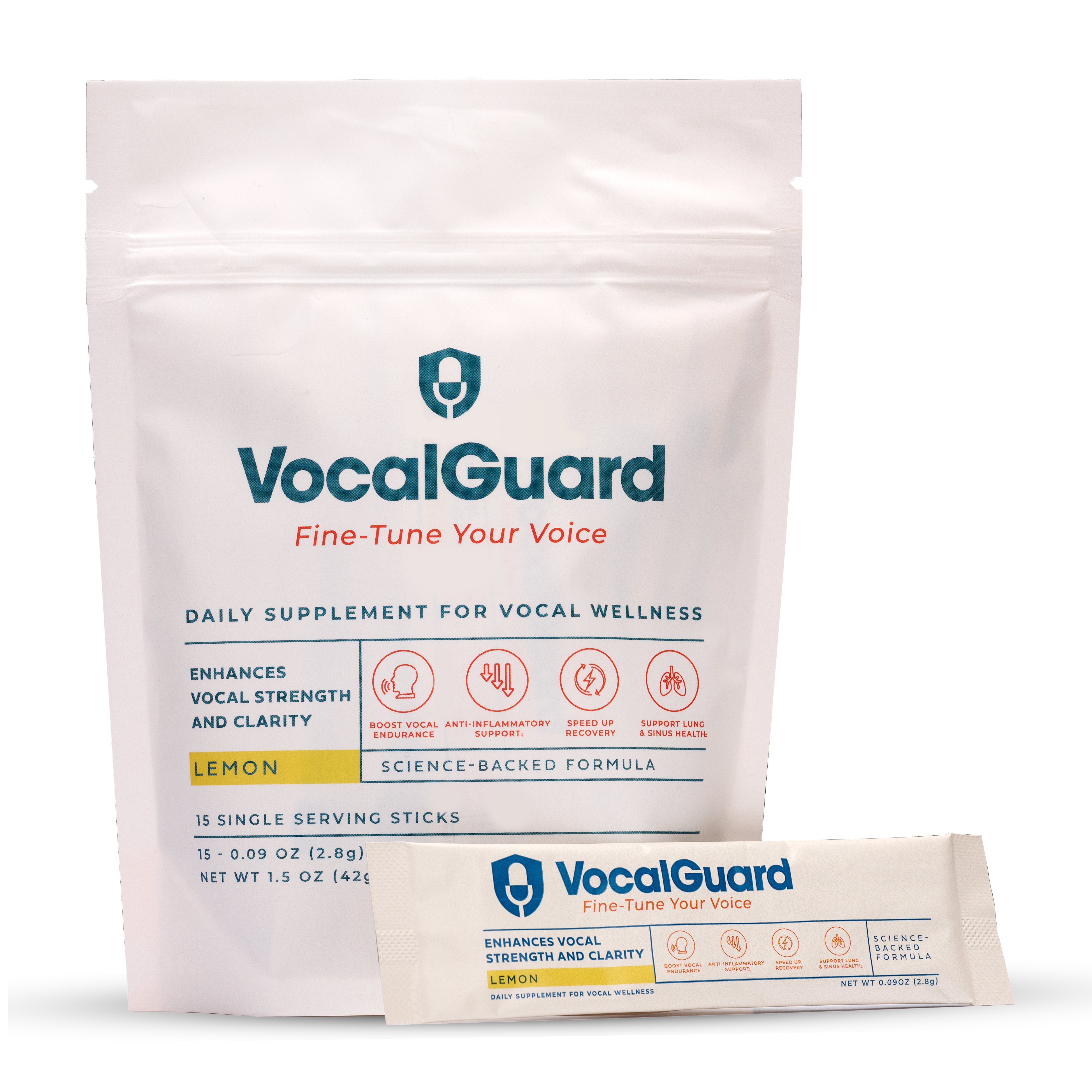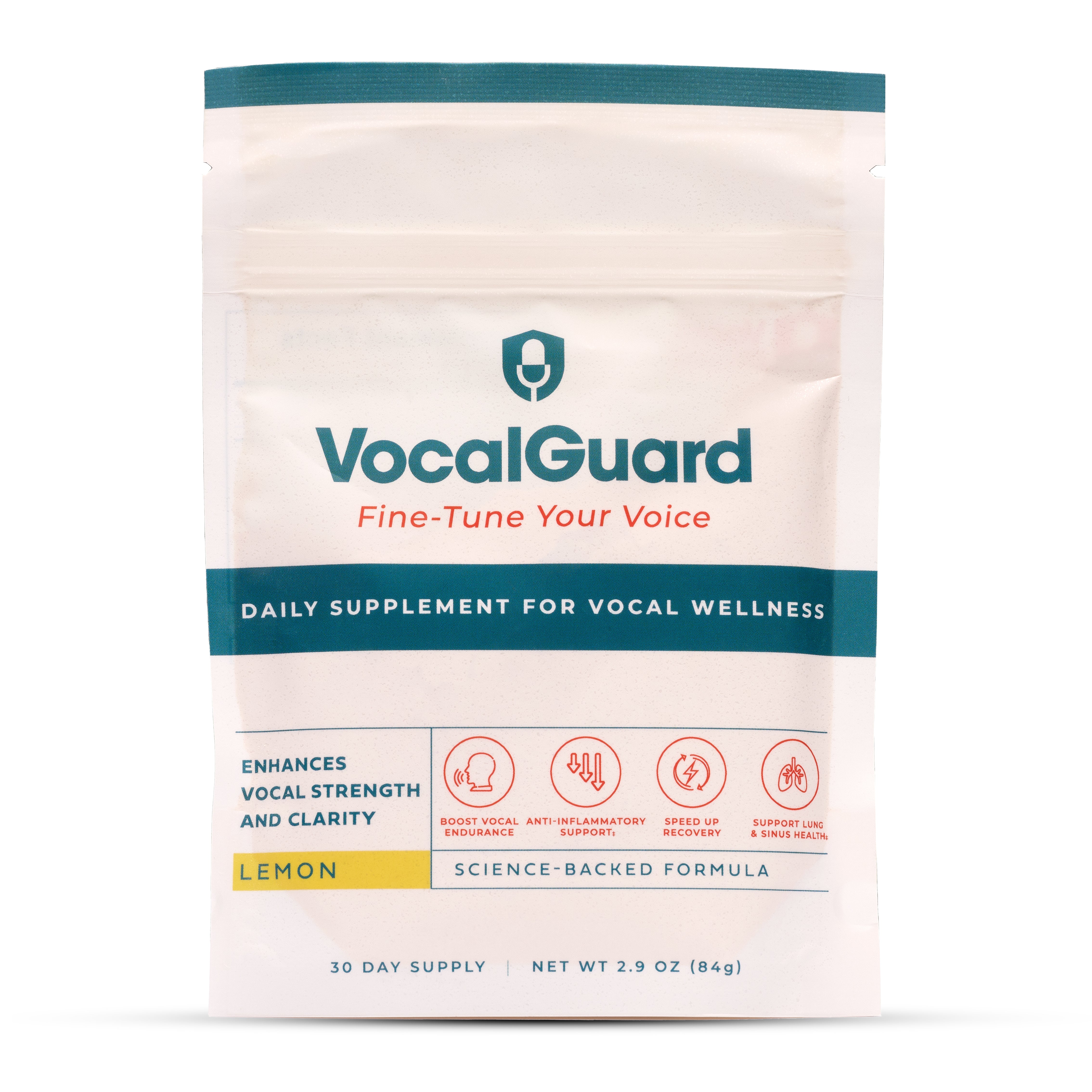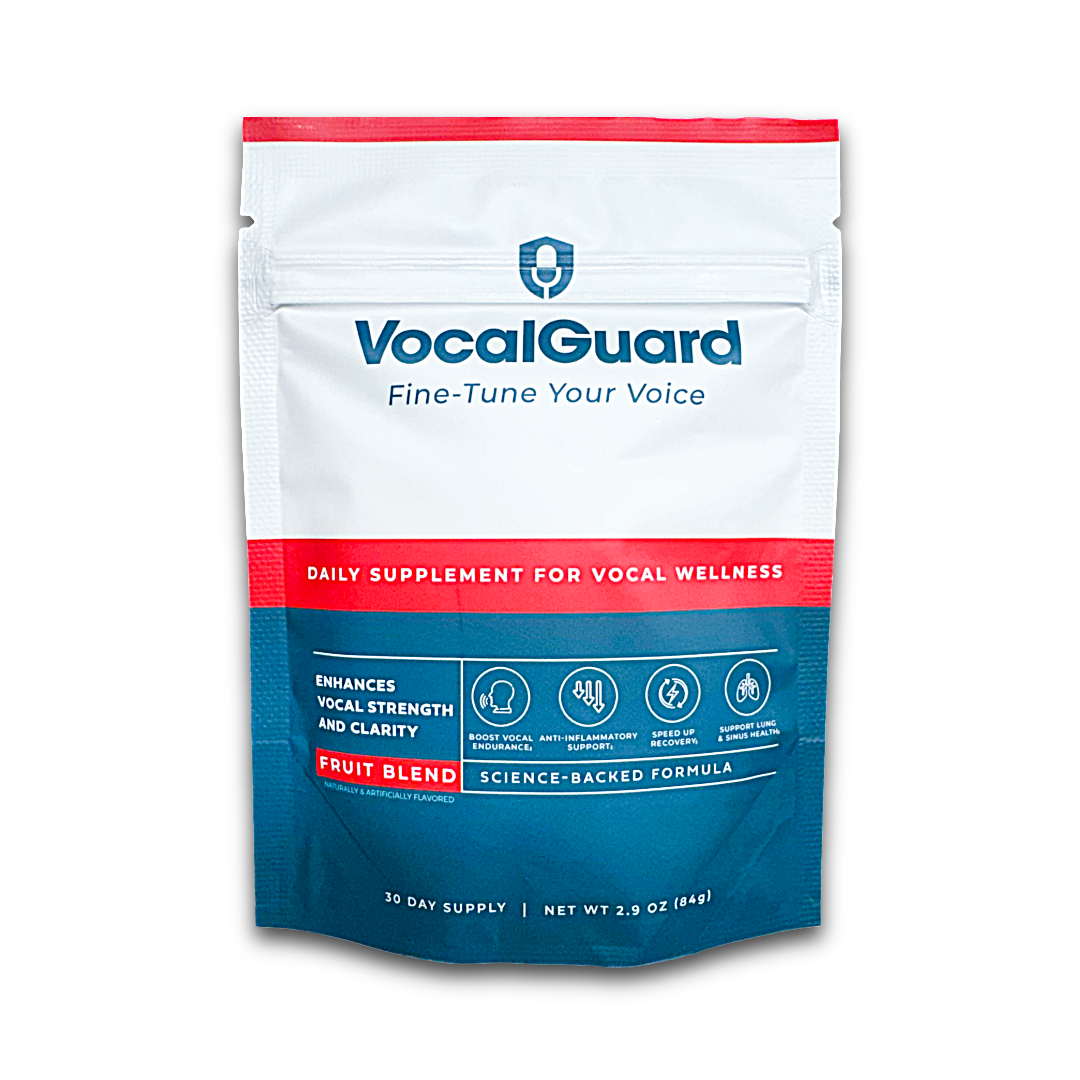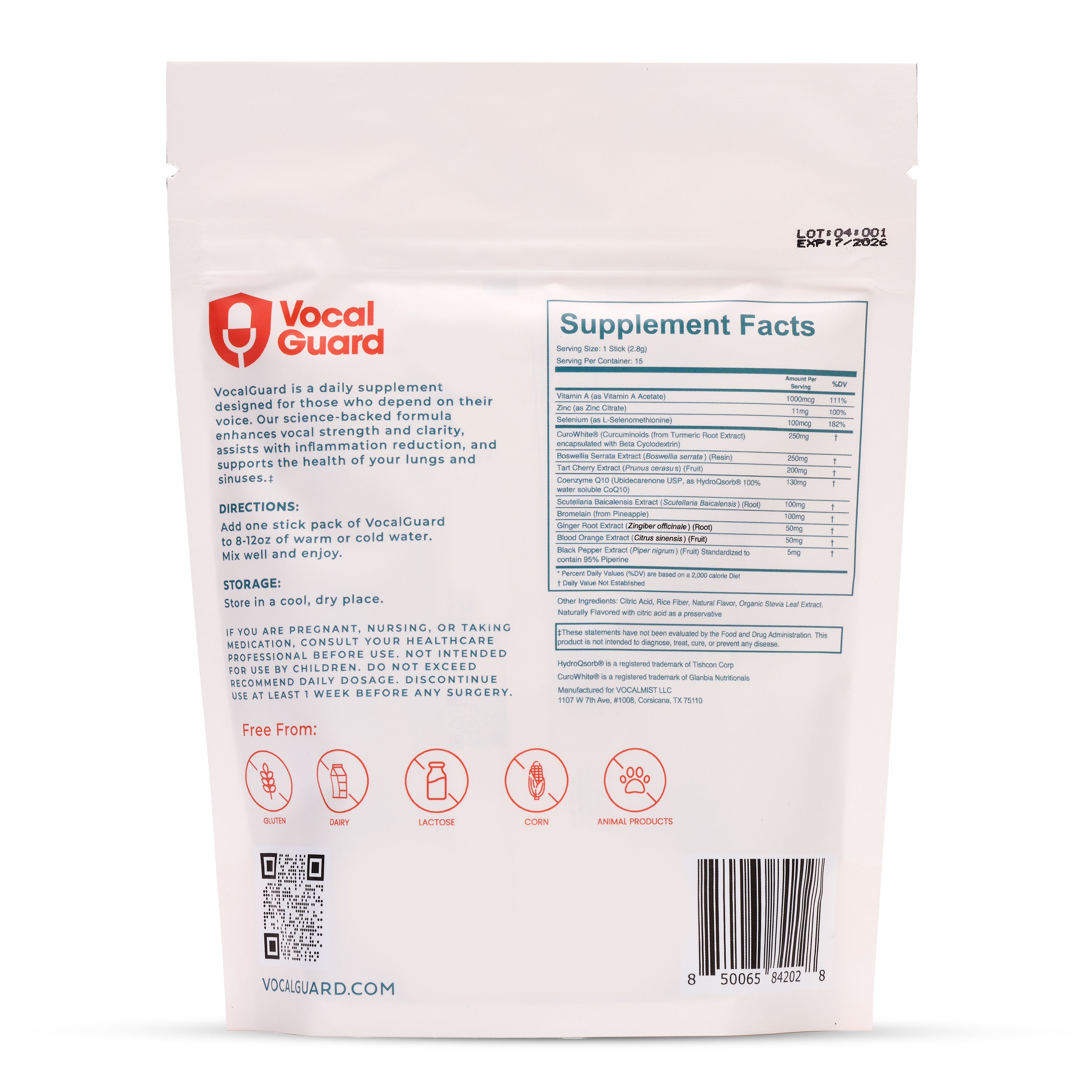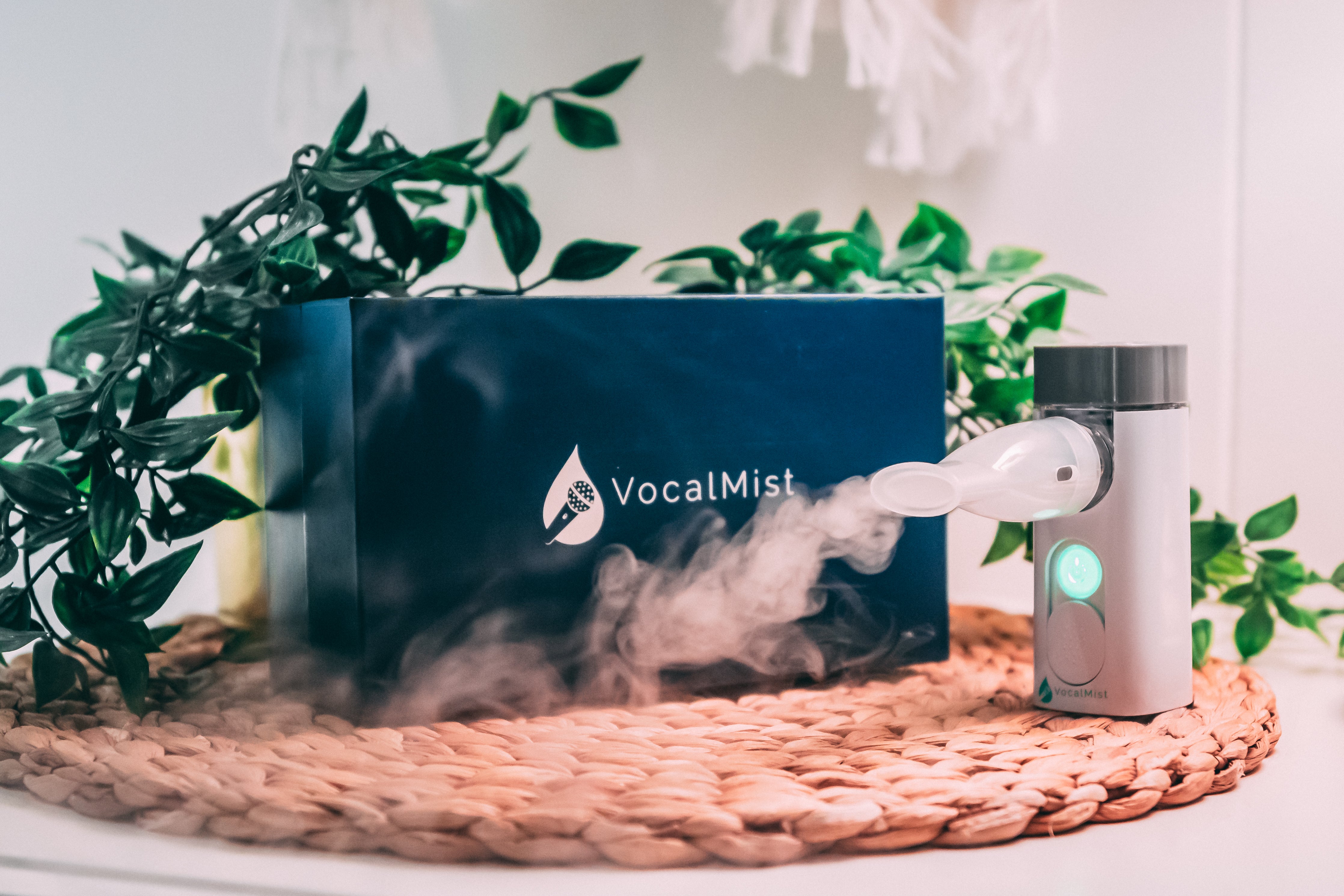Research shows that using a VocalMist nebulizer can make singing easier for YOU.
The latest findings indicate that using a nebulizer with isotonic saline can reduce your Phonation Threshold Pressure (PTP) as well as your Perception of Phonatory Effort (PPE), meaning it takes less pressure for your vocal folds to create sound.
Less pressure means less tension in your singing, less swelling after a heavy singing schedule, and faster recovery times!
Scientifically Backed
Important for optimal vocal performance
"Vocal fold hydration is important for healthy function of the vocal mechanism. Vocal fold surface fluid protects the mucosa and facilitates efficient vocal fold oscillation... Singers are believed to be particularly at risk for voice problems related to dehydration due to environmental and voice use factors...Therefore, it is important for optimal vocal performance to take measures to ensure that the vocal mechanism is properly hydrated." (Fujiki 2014)
Reduce vocal effort and increase efficiency
"...Nebulized Isotonic Saline provides immediate relief from the perceived negative effects associated with brief exposure to dry air in the singing voice...In essence, Isotonic Saline might serve simply as a laryngeal lubricant, decreasing the viscosity of the surface liquid on the vocal folds and thereby reducing vocal effort and increasing vocal fold vibratory efficiency." (Tanner 2010)
Proven by Research
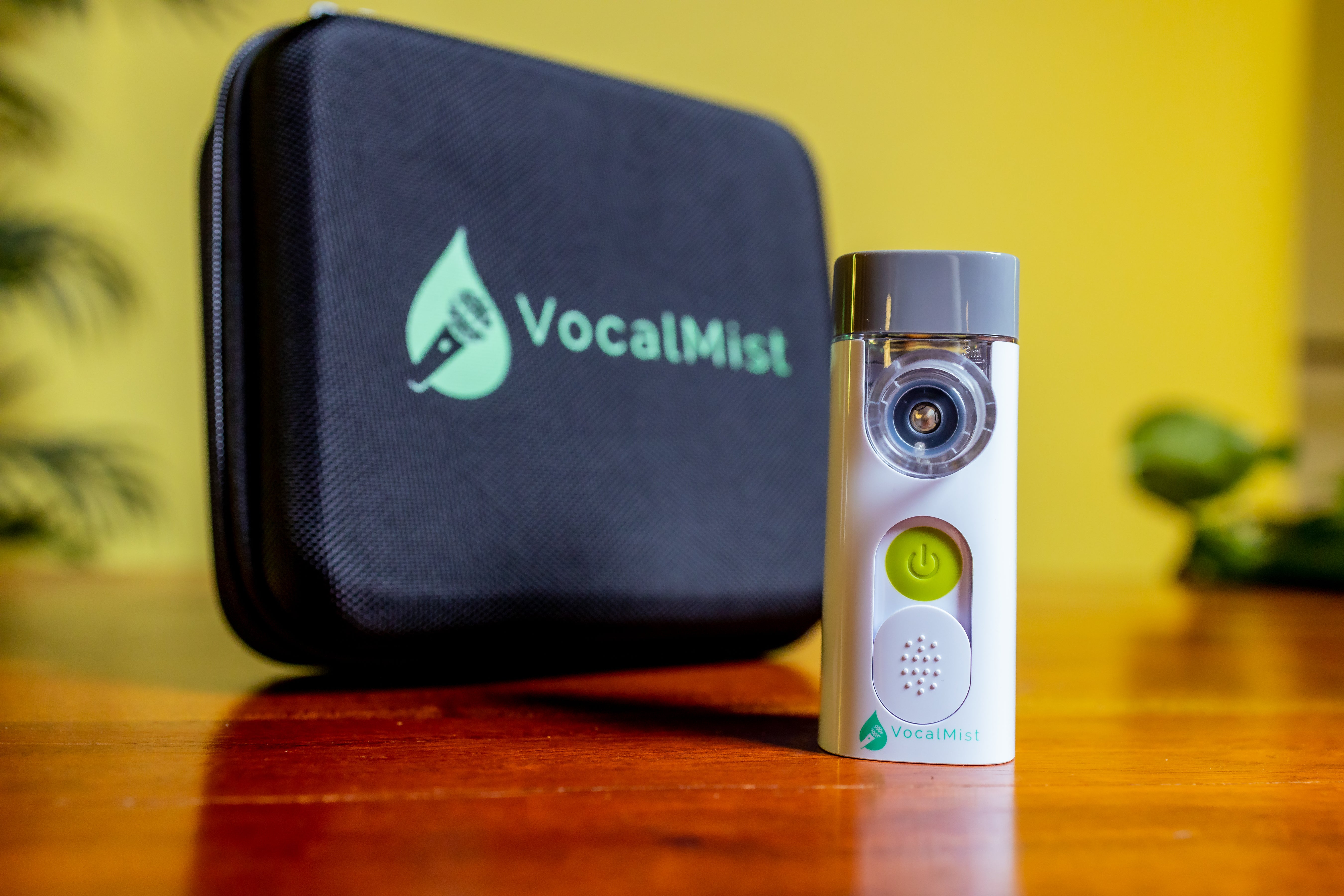
"The nebulization procedure with saline solution improves acoustic measurements, the electroglottographic closed quotient, and vocal self-perception..." (Souza 2021)
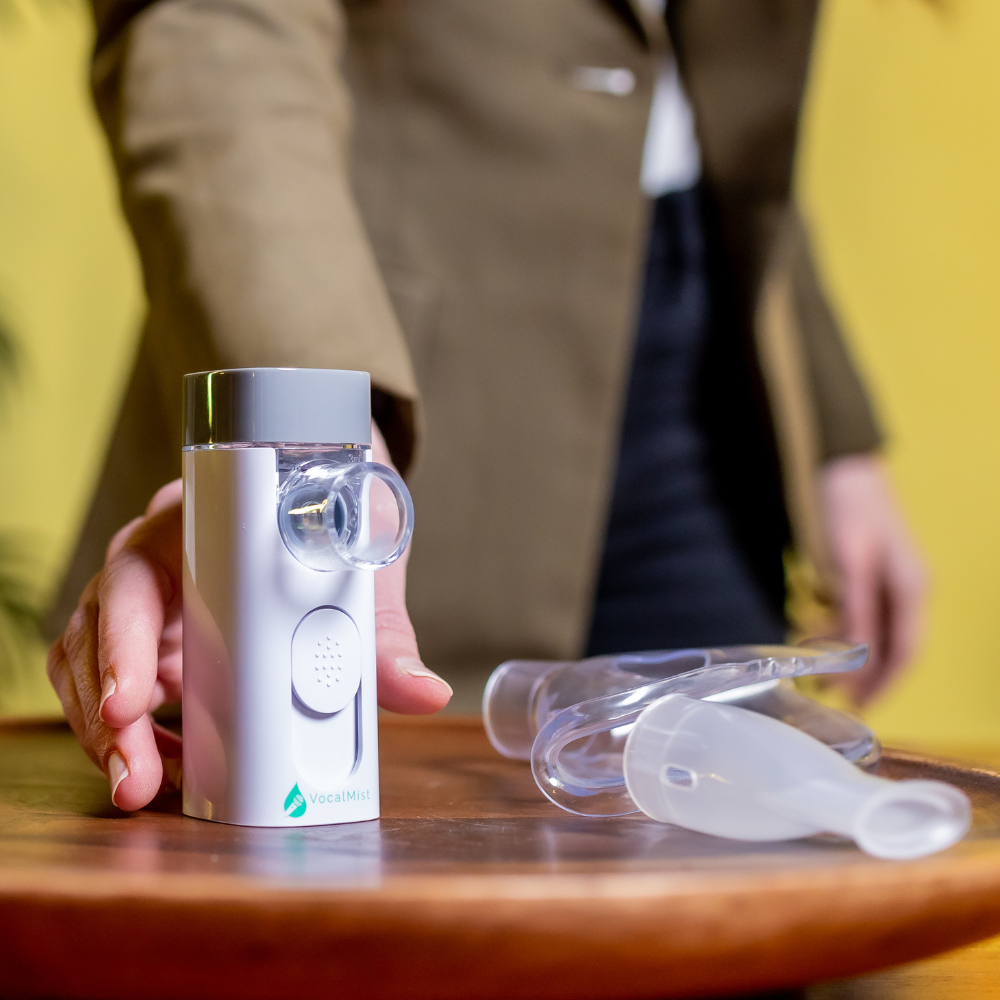
"Ultrasonic nebulizers using isotonic saline are most effective in optimizing voice function prior to a dehydration or dry environment." (Hansen 2016)
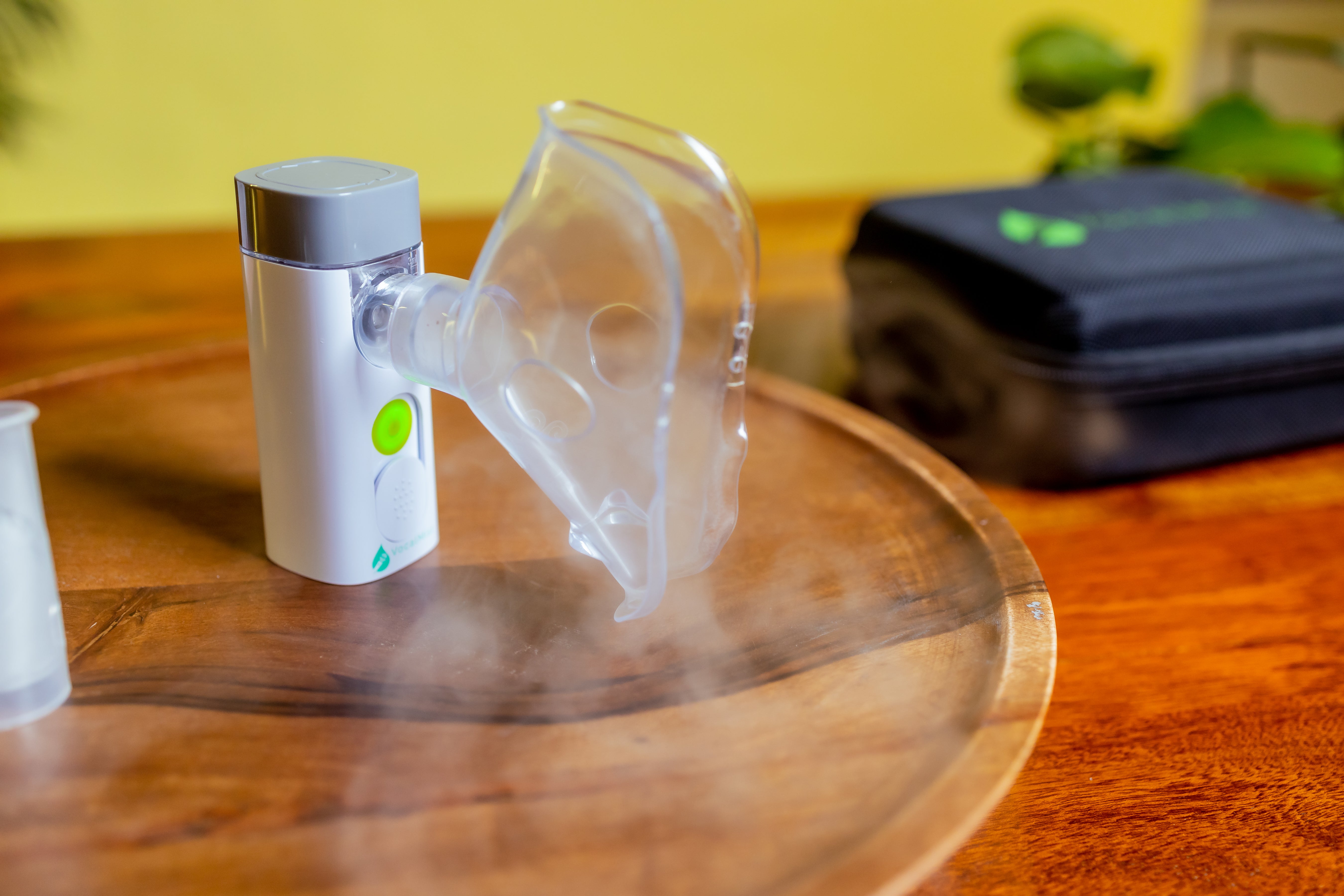
"Nebulized isotonic saline improves voice production based on acoustic and patient-based ratings of voice severity." (Tanner 2015)
Sources
Elisa Meiti Ribeiro Lin Plec, "Effect of Nebulization on Laryngeal Parameters: Analysis Using High-Speed Digital Videolaryngoscopy"(2022). Journal of Voice
Souza BO, "Nebulized Saline Solution: A Multidimensional Voice Analysis" (2023), J Voice.
Hansen, Mallory Lynn, "Preventing Vocal Fold Dehydration Using Aerosolized Salinein an Excised Porcine Model" (2016). Theses and Dissertations. 6120.
Fujiki, Robert B., "The Effects of Laryngeal Desiccation and Nebulized Isotonic Saline in Trained Male Singers" (2014). Theses and Dissertations. 4025.
Tanner, et al “Nebulized Isotonic Saline Versus Water Following a Laryngeal Desiccation Challenge in Classically Trained Sopranos” (2010). Journal of speech, language, and hearing research : JSLHR. 53. 1555-66. 10.1044/1092-4388(2010/09-0249).
Sivasankar, “The role of hydration in vocal fold physiology.” Curr Opin Otolaryngol Head Neck Surg. 2010 Jun; 18(3): 171–175.
Leydon C, et al. Vocal fold surface hydration: a review. J Voice. 2009 Nov;23(6):658-65
Tanner K, et al. “Nebulized isotonic saline improves voice production in Sjögren's syndrome.” Laryngoscope. 2015 Oct;125(10):2333-40.
Santana, et al, “The Effect of Surface Hydration on Teachers' Voice Quality: An Intervention Study”(2017).Journal of Voice, VOLUME 31, ISSUE 3, P383.E5-383.E11
